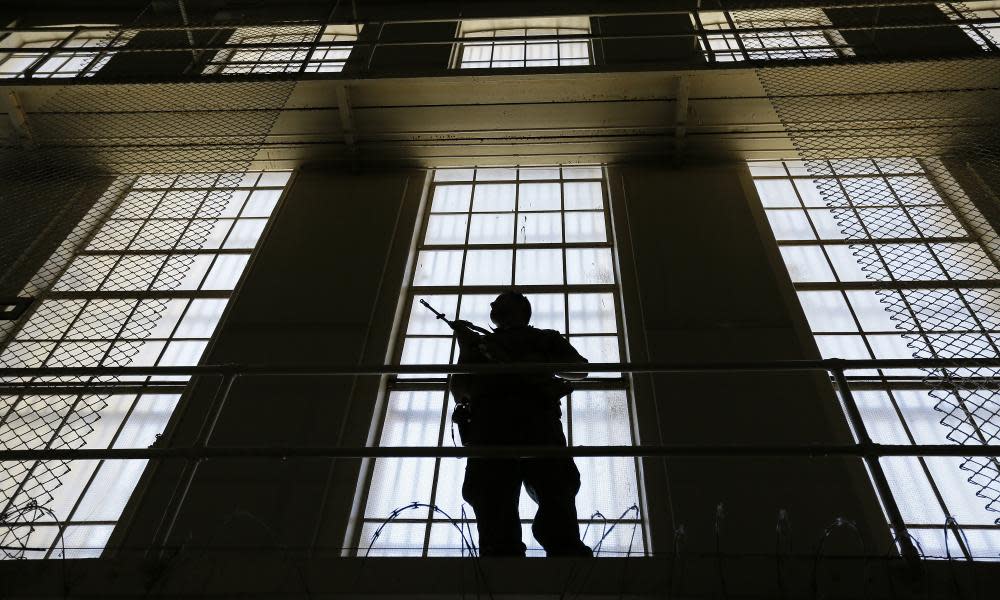'Global epidemic' of US-style plea bargaining prompts miscarriage warning

The adoption of US-style plea bargaining has reached “epidemic proportions” as more and more countries persuade defendants to plead guilty and renounce traditional trial rights, a survey of international justice systems warns.
The study of 90 countries by the human rights organisation Fair Trials reveals that use of such procedures has increased by 300% since 1990, boosting, it is alleged, the risk of miscarriages of justice.
In the United States – which houses a fifth of the world’s prison population – as many as 97% of federal criminal cases are resolved through guilty pleas involving unregulated negotiations between prosecutors and defendants. In 2015, 44% of documented US miscarriages of justice involved cases where the defendant had pleaded guilty.
Popular television culture may be flooded with US courtroom dramas, the report says, but it increasingly represents an outdated view of the American justice system where even juveniles, who are less able to understand the legal consequences, are encouraged to plead guilty.
The US model has been the ideological inspiration for adopting trial-waiver systems worldwide, the study notes. The US government has provided development funding and technical support for rule of law projects, primarily through the Office of Overseas Prosecutorial Development and Training sending out American prosecutors to train foreign judges and lawyers.
Fair Trials says that use of trial waivers in some countries has skyrocketed over the course of a few years because they are promoted as providing a more efficient form of justice. In Georgia, 12.7% of cases were resolved through plea bargaining in 2005 but that figure had soared to 87.8% of cases by 2012.
In Russia, deployment of plea bargaining deals shot up from 37% in 2008 to 64% in 2014. In the first instance courts in Chongqing, one of China’s major cities, use of ‘summary procedures’ – equivalent to trial waivers – increased from 61% in 2011, to 82% two years later. In South Africa, the number of similar “plea and sentence agreements” increased by a third in 2014-15.
The Fair Trials report, The Disappearing Trial, was written with the international law firm Freshfields Bruckhaus Deringer. It acknowledges that there can be some merit in plea bargaining – such as waiting times, pre-trial detention, costs and protecting vulnerable victims from having to relive their ordeals – but it argues there should be more safeguards such as mandatory access to lawyers.
The organisation suggests that judges could also be involved in negotiations and evidence review to ensure that convictions are not imposed on the basis of unreliable confessions or guilty pleas alone. There is insufficient judicial scrutiny of sentence reduction procedures in the UK, it suggests.
In some countries such as Argentina, the report says, trial waiver systems have been adopted to improve conviction rates. One prosecutor in South Africa told the survey that “plea and sentence agreements” were useful in boosting performance rates “in courts where judges tend to acquit”.
Jago Russell, chief executive of Fair Trials said: “We need to wake up to how justice is now being delivered around the world. The trial still dominates in media portrayals but, in reality, the trial is being overtaken by guilty pleas agreed after ‘deals’ are struck behind closed doors.
“It can save time and money to persuade a defendant to plead guilty, but it can also produce miscarriages of justice and damage public trust. At its most extreme people have been coerced into pleading guilty to offences they did not commit, and guilty pleas have been used to prevent serious misconduct by the police or prosecutors being exposed.
“We don’t need to stop plea deals but we do need to make sure systems that encourage people to forego their right to a trial protect basic safeguards of fairness.”

 Yahoo News
Yahoo News 
